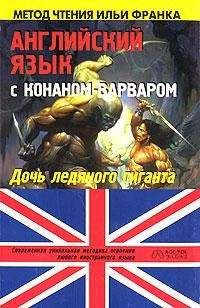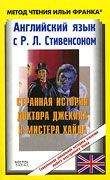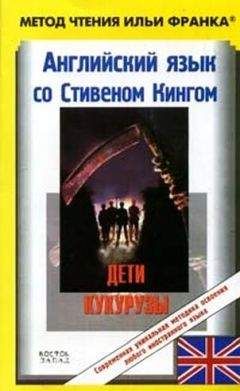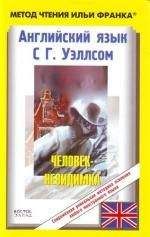calmly [ˈkɑ:mlɪ], return [rɪˈtə: n], crowd [kraud]
Conan shifted his broad sword-belt to his liking and calmly returned the searching stares directed at him by the squad of watchmen as they swung past. They eyed him curiously and suspiciously, for he was a man who stood out even in such a motley throng as crowded the winding streets of Zamboula. His blue eyes and alien features distinguished him from the Eastern swarms, and the straight sword at his hip added point to the racial difference.
The watchmen did not accost him but swung on down the street, while the crowd opened a lane for them (стражники не пристали к нему, но прошествовали дальше по улице к центру, в то время как толпа открывала тропинку для них = расступалась перед ними; down the street — по улице к центру города; up the street — по улице от центра города). They were Pelishtins, squat, hook-nosed, with blue-black beards sweeping their mailed breasts (они были пелиштинцы, приземистые, крючконосые с иссиня-черными бородами, охватывающими их грудь в кольчуге) — mercenaries hired for work the ruling Turanians considered beneath themselves (наемники, нанятые для работы, /которую/ правящие туранцы считали ниже себя = своего достоинства), and no less hated by the mongrel population for that reason (и не менее ненавидимыми нечистокровным населением по этой причине).
Conan glanced at the sun, just beginning to dip behind the flat-topped houses on the western side of the bazaar (Конан посмотрел на солнце, как раз начинающее заходить за дома с плоскими крышами на западной стороне базара), and hitching once more at his belt, moved off in the direction of Aram Baksh's tavern (и подтянув еще раз свой ремень, двинулся в направлении таверны Арама Бахша).
down [daun], population [pɔpjuˈleɪʃn], reason [ˈri: zn]
The watchmen did not accost him but swung on down the street, while the crowd opened a lane for them. They were Pelishtins, squat, hook-nosed, with blue- black beards sweeping their mailed breasts — mercenaries hired for work the ruling Turanians considered beneath themselves, and no less hated by the mongrel population for that reason.
Conan glanced at the sun, just beginning to dip behind the flat-topped houses on the western side of the bazaar, and hitching once more at his belt, moved off in the direction of Aram Baksh's tavern.
With a hillman's stride he moved through the ever-shifting colors of the streets (широким шагом горца он двигался сквозь постоянно меняющиеся цвета улиц), where the ragged tunics of whining beggars brushed against the ermine- trimmed khalats of lordly merchants (где поношенные туники хныкающих попрошаек задевали отороченные горностаем халаты надменных купцов), and the pearl-sewn satin of rich courtesans (и расшитые жемчугом атласа богатых куртизанок). Giant black slaves slouched along (гигантские черные рабы шли сутулясь), jostling blue-bearded wanders from the Shemitish cities (расталкивая синебородых странников из шемитских городов), ragged nomads from the surrounding deserts, traders and adventurers from all the lands of the East (оборванных кочевников из окружающих пустынь, торговцев и авантюристов из всех стран Востока).
through [Ɵru: ], ermine [ˈə: mɪn], adventurer [ədˈvenʧərə]
With a hillman's stride he moved through the ever-shifting colors of the streets, where the ragged tunics of whining beggars brushed against the ermine-trimmed khalats of lordly merchants, and the pearl-sewn satin of rich courtesans. Giant black slaves slouched along, jostling blue-bearded wanders from the Shemitish cities, ragged nomads from the surrounding deserts, traders and adventurers from all the lands of the East.
The native population was no less heterogeneous (местное население было не менее разношерстным). Here, centuries ago, the armies of Stygia had come, carving an empire out of the eastern desert (сюда, века назад пришли армии Стигии, создавая империю из восточной пустыни). Zamboula was but a small trading town then, lying amidst a ring of oases, and inhabited by descendants of nomads (Замбула был тогда лишь маленьким торговым городом, лежащим среди кольца оазисов и населенным потомками кочевников). The Stygians built it into a city and settled it with their own people, and with Shemite and Kushite slaves (стигийцы построили его = превратили его в большой город и заселили его своими людьми: шемитскими и кушитскими рабами). The ceaseless caravans, threading the desert from east to west and back again (непрерывные караваны, пронизывающие = пересекающие пустыню с востока на запад и снова назад; thread — нитка, нить), brought riches and more mingling of races (привозили богатства и большее смешение рас; to bring — приносить, привозить). Then came the conquering Turanians, riding out of the East to thrust back the boundaries of Stygia (потом пришли завоеватели- туранцы, прискакав с востока, /чтобы/ отбросить назад границы Стигии), and now for a generation Zamboula had been Turan's westernmost outpost, ruled by a Turanian satrap (и теперь уже /целое/ поколение Замбула является самым западным аванпостом Турана, управляемым туранским сатрапом).
The native population was no less hetrogeneous. Here, centuries ago, the armies of Stygia had come, carving an empire out of the eastern desert. Zamboula was but a small trading town then, lying amidst a ring of oases, and inhabited by descendants of nomads. The Stygians built it into a city and settled it with their own people, and with Shemite and Kushite slaves. The ceaseless caravans, threading the desert from east to west and back again, brought riches and more mingling of races. Then came the conquering Turanians, riding out of the East to thrust back the boundaries of Stygia, and now for a generation Zamboula had been Turan's westernmost outpost, ruled by a Turanian satrap.
The babel of a myriad tongues smote on the Cimmerian's ears (вавилонский галдеж мириады языков ударил по ушам киммерийца) as the restless pattern of the Zamboulan streets weaved about him в то время как беспокойная картина замбульских улиц сплеталась вокруг него) — cleft now and then by a squad of clattering horsemen (рассекаемая то и дело отрядом грохочущих всадников), the tall, supple warriors of Turan (высоких гибких воинов Турана), with dark hawk-faces, clinking metal, and curved swords (с темными ястребиными лицами, звенящим металлом и кривыми саблями). The throng scampered from under their horses' hoofs, for they were the lords of Zamboula (толпа выскакивала из-под копыт их лошадей, так как они были владыками Замбулы). But tall, somber Stygians, standing back in the shadows, glowered darkly, remembering their ancient glories (но высокие, мрачные стигийцы, держась сзади в тени, зыркали зловеще, вспоминая свою древнюю = былую славу). The hybrid population cared little whether the king who controlled their destinies dwelt in dark Khemi or gleaming Aghrapur (смешанное население мало заботило, живет ли король, который управлял их судьбами, в темном Кеми или в блистающем Аграпуре; to dwell — жить, проживать). Jungir Khan ruled Zamboula (Джунгир Хан правил Замбулой), and men whispered that Nafertari, the satrap's mistress, ruled Jungir Khan (и люди шептали, что Нафертари, возлюбленная сатрапа, правила Джунгир Ханом); but the people went their way но люди шли по своим путям = жили по своим привычкам / традициям), flaunting their myriad colors in the streets (щеголяя своей мириадами цветов на улицах), bargaining, disputing (заключая сделки, споря), gambling, swilling, loving (играя в азартные игры, выпивая, любя; to swill — полоскать, обливать водой; жадно пить, лакать), as the people of Zamboula have done for all the centuries its towers and minarets have lifted over the sands of the Kharamun (как люди Замбулы делали на протяжении всех столетий, /как/ их башни и минареты поднялись над песками Кхарамуна).
pattern [ˈpætən], supple [sʌpl], metal [metl]
The babel of a myriad tongues smote on the Cimmerian's ears as the restless pattern of the Zamboulan streets weaved about him — cleft now and then by a squad of clattering horsemen, the tall, supple warriors of Turan, with dark hawk- faces, clinking metal, and curved swords. The throng scampered from under their horses' hoofs, for they were the lords of Zamboula. But tall, somber Stygians, standing back in the shadows, glowered darkly, remembering their ancient glories. The hybrid population cared little whether the king who controlled their destinies dwelt in dark Khemi or gleaming Aghrapur. Jungir Khan ruled Zamboula, and men whispered that Nafertari, the satrap's mistress, ruled Jungir Khan; but the people went their way, flaunting their myriad colors in the streets, bargaining, disputing, gambling, swilling, loving, as the people of Zamboula have done for all the centuries its towers and minarets have lifted over the sands of the Kharamun.
Bronze lanterns, carved with leering dragons, had been lighted in the streets before Conan reached the house of Aram Baksh (бронзовые фонари с выгравированными злобными драконами, были зажжены на улицах, до того как Конан добрался до дома Арама Бахша). The tavern was the last occupied house on the street, which ran west (таверна была последним обитаемым домом на улице, которая шла на запад). A wide garden, enclosed by a wall, where date palms grew thick, separated it from the houses farther east (обширный сад, огороженный стеной, где густо росли финиковые пальмы, отделяла его от домов дальше на востоке). To the west of the inn stood another grove of palms, through which the street, now become a road, wound out into the desert (к западу от гостиницы стояла еще одна роща пальм, сквозь которую улица, теперь ставшая дорогой, вилась /и уходила/ в пустыню; to stand — стояться; to wind — извиваться, виться). Across the road from the tavern stood a row of deserted huts, shaded by straggling palm trees and occupied only by bats and jackals (через дорогу от таверны стоял ряд брошенных хижин, затененных разбросанными пальмами и населенных только летучими мышами и шакалами). As Conan came down the road, he wondered why the beggars, so plentiful in Zamboula, had not appropriated these empty houses for sleeping quarters (когда Конан шел по дороге, он удивлялся, почему нищие, такие многочисленные в Замбуле, не присвоили /себе/ эти пустые дома для ночлежек). The lights ceased some distance behind him (огни закончились на некотором расстоянии позади него). Here were no lanterns, except the one hanging before the tavern gate (здесь не было фонарей, за исключением одного = фонаря, свисающего перед воротами таверны): only the stars, the soft dust of the road underfoot, and the rustle of the palm leaves in the desert breeze (только звезды, мягкая пыль дороги под ногами и шорох пальмовых листьев на пустынном ветерке).
lantern [ˈlæntən], palm [pɑ:m], jackal [ˈʤækɔ: l]
Bronze lanterns, carved with leering dragons, had been lighted in the streets before Conan reached the house of Aram Baksh. The tavern was the last occupied house on the street, which ran west. A wide garden, enclosed by a wall, where date palms grew thick, separated it from the houses farther east. To the west of the inn stood another grove of palms, through which the street, now become a road, wound out into the desert. Across the road from the tavern stood a row of deserted huts, shaded by straggling palm trees and occupied only by bats and jackals. As Conan came down the road, he wondered why the beggars, so plentiful in Zamboula, had not appropriated these empty houses for sleeping quarters. The lights ceased some distance behind him. Here were no lanterns, except the one hanging before the tavern gate: only the stars, the soft dust of the road underfoot, and the rustle of the palm leaves in the desert breeze.
Aram's gate did not open upon the road but upon the alley which ran between the tavern and the garden of the date palms (ворота Арама не открывались на дорогу = открывались не на дорогу, но на аллею, которая бежала между таверной и садом с финиковыми пальмами; to run — бежать). Conan jerked lustily at the rope which dangled from the bell beside the lantern (Конан дернул энергично за веревку, которая свисала с колокольчика за фонарем), augmenting its clamor by hammering on the iron-bound teakwood gate with the hilt of his sword (усиливая его звяканье ударами по обшитыми железом воротам из тика рукояткой своего меча; to hammer — молотить). A wicket opened in the gate, and a black face peered through (в воротах открылось окошко, и черное лицо выглянуло через /него/).





